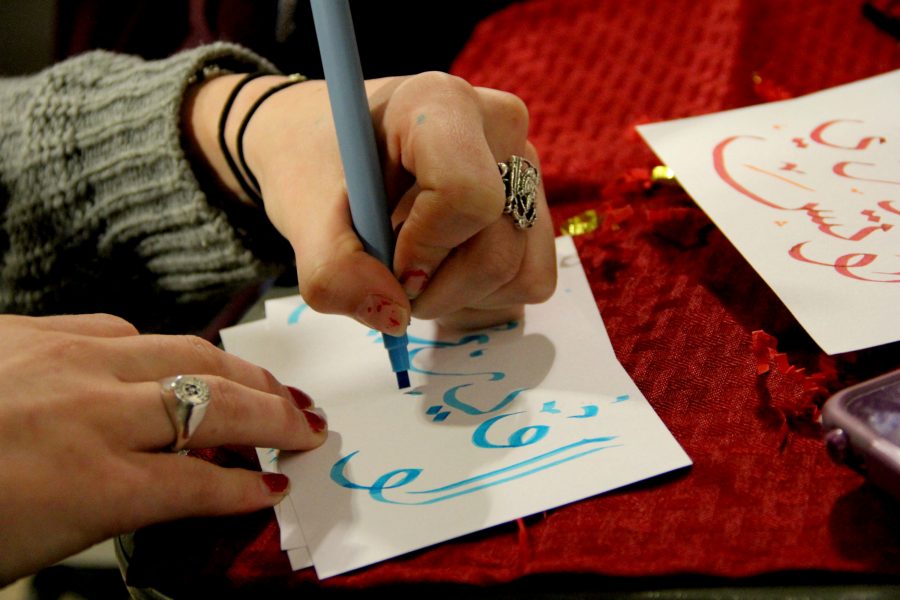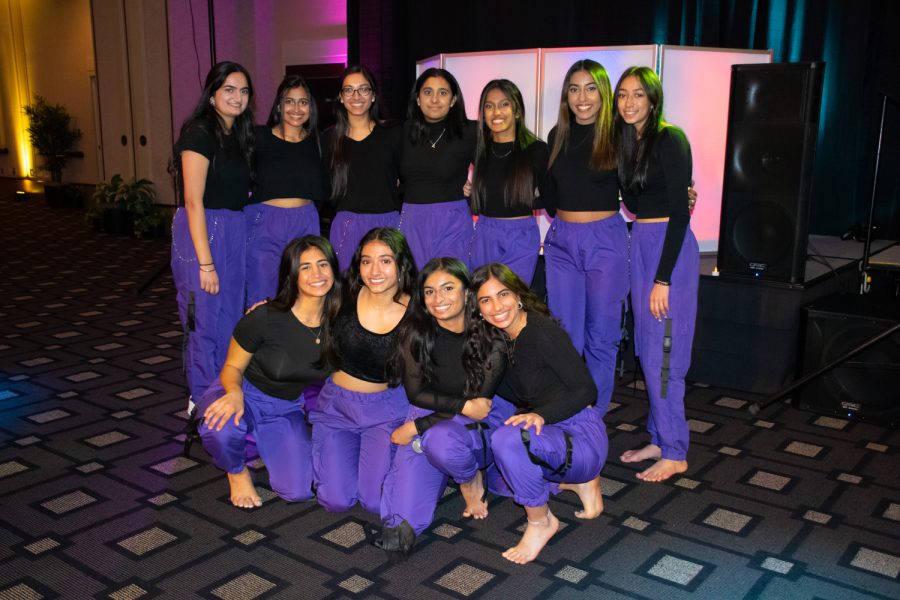
All Marquette students are cordially invited to celebrate the engagement of Alexander Fabrizio and Rochelle Christensen, but it won’t be your typical engagement party.
Instead Fabrizio, a senior in the College of Arts & Sciences, and Christensen, a 2012 alumna, are working with Marquette organizations to bring a traditional henna night to campus — complete with Arab and Muslim food, folk dances, performances and application of henna to the hands of all Marquette students interested in experiencing the tradition.
The event will take place Saturday in the Alumni Memorial Union from 5:30 to 8:30 p.m. It is sponsored by a coalition of Marquette and Milwaukee organizations, with the Office of International Education, the department of foreign languages and the Arab and Muslim Women Research and Resource Institute all coming together to celebrate the couple’s upcoming wedding in May. Fabrizio is a member of Marquette’s ROTC program and a student of Arabic, and Christensen is an ensign in the U.S. Navy.
Enaya Othman, president of AMWRRI and a visiting professor of Arabic language and culture at Marquette, has been a primary organizer of the celebration.
“The henna night is usually seen in Arab countries, especially countries like Jordan and Palestine,” Othman said. “The ceremony is usually done before the wedding day, and any wedding for a Muslim family – or a family from the Arab countries or Pakistan and India – has a henna night where they welcome the bride and the groom.”
Othman plans to create the celebration in a way that helps bring the classic henna night traditions to campus, closely resembling the ceremonies of Arab and Muslim families around the world.
This, of course, includes the application of henna itself. Henna, a dye from the plant with the same name, has been used for thousands of years.
“Wedding henna is applied to the hands of the groom and the bride in a kind of very decorative way of applying henna,” Othman said. “For example, in Pakistan or India they also do it on the legs or the foot even, though we will stay in the Arab tradition with the hands only.”
“(In Muslim and Arab culture), Arabic letters or calligraphy can be used in henna or a plant like olive leaves or tree,” Othman said. “So it can show something significant in the specific culture. But it mostly is for the bride to make her more beautiful for her wedding.”
In addition to henna, the event will feature people in elaborate cultural dress, with women in colorful full-length dresses.
Another important part of the night’s entertainment will be a presentation of Arab and Muslim dances and music. Members of the Milwaukee community will perform in the traditional style and will even teach guests to join in through lessons and call-and-response demonstrations.
“Most of the songs speak of the bride and the groom, families, generosity and the hope of happiness that they will experience with each other,” Othman said. “It shows that this really is a culture of songs, either spoken or sung.”
Six Marquette students who are members of the Arabic club will also perform the traditional debka line-dance, a popular celebratory dance in Lebanon, Palestine, Jordan, Turkey, Syria and Iraq.
Along with all the entertainment of the night, guests can also expect to experience customary meal. Ceremonial food will include a dinner of lamb, rice and dishes with nuts and yogurt.
“Henna night is a way to make people here appreciate other cultures and see how these people are very proud of their heritage and keep it alive in the second and third generations,” Othman said. “I think it will be a very very interesting event. It’s really something different that we hope will help preserve the tradition.”




